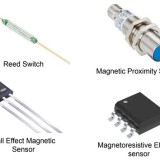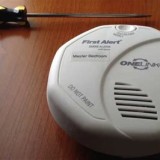Essential Aspects of Alarm for Water in Basement
Protecting your home from water damage is crucial for maintaining its structural integrity and value. An alarm for water in the basement can provide early detection, allowing you to take prompt action to minimize the impact of flooding. Understanding the essential aspects of these alarms will empower you to make informed decisions regarding their selection, installation, and maintenance.
Types of Sensors
Water alarms utilize different sensor technologies to detect moisture. Float switches are simple devices that detect rising water levels and activate an alarm. Conductivity sensors measure electrical conductivity changes in water, triggering an alarm when water comes into contact with the electrodes. Pressure sensors detect pressure changes in water pipes, indicating leaks or bursts.
Alarm Notification
Water alarms notify you of leaks or floods through various means. Audible alarms emit a loud sound to alert you in real-time. Visual alarms use LED lights or displays to provide a visual indication of the leak. Remote notifications via smartphones or email enable you to receive alerts even when away from home.
Power Source
Water alarms require a reliable power source to function properly. Battery-operated alarms provide portability and can be placed anywhere in the basement. Wired alarms connect to the home's electrical system for continuous power supply.
Placement and Installation
Strategic placement of water alarms is crucial for effective detection. Install alarms near potential leak sources such as water pipes, appliances, and basement windows. Follow manufacturer's instructions for proper installation, ensuring sensors are positioned at the appropriate height and location.
Maintenance and Testing
Regular maintenance and testing of water alarms are essential for ensuring their reliability. Clean sensors periodically to prevent false alarms. Replace batteries in battery-operated alarms as needed. Conduct periodic tests to verify the alarm's functionality and sound level.
Additional Features
Some water alarms offer additional features that enhance their functionality and convenience. Automatic water shutoff valves can prevent further flooding by automatically shutting off the water supply when a leak is detected. Wireless connectivity allows you to remotely monitor the alarm status and receive notifications on your smartphone.
By considering these essential aspects of water alarms, you can effectively protect your basement from water damage. A well-chosen and maintained alarm system can provide peace of mind, saving you from costly repairs and potential health hazards.

Watchdog Water Alarm Basement

Watchdog Water Alarm Basement

Basement Watchdog Bwd Hwa Water Alarm

New Watchdog 360 Water Alarm Basement

Basement Watchdog Battery Operated Water Alarm Sump Accessory Bwd Hwa The Home Depot

Where To Buy The Water Alarm Basement Watchdog

How To Install A High Water Alarm In Your Sump Pit

Gustavedesign 2 Pack 130db Home Water Leak Leakage Detection Detector Sound Alarm Flood Sensor Siren For Security Basement Floor Com

Prevent Flooded Basements With This On Water Leak Detector

Basement Watchdog Plastic Alarm In The Water Pump Accessories Department At Com








